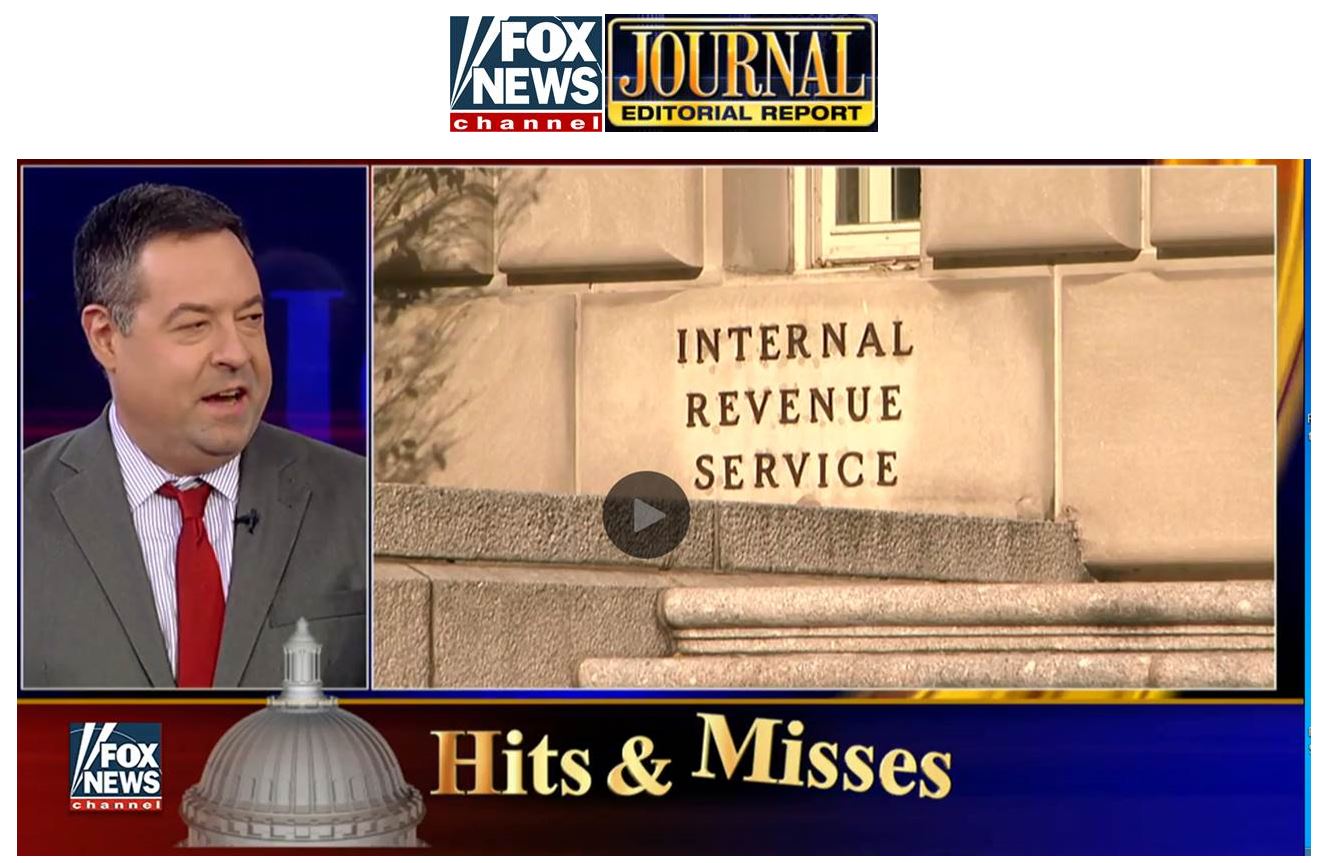CoA Institute Sues for Records on Potential FBI Payment to Democratic Opposition Researcher Who Compiled Infamous Trump Dossier
Washington D.C. – Cause of Action Institute (“CoA Institute”) has filed a lawsuit in the U.S. District Court for the District of Columbia seeking records relating to the relationship between the Federal Bureau of Investigation (“FBI”) and Christopher Steele, a former British spy who made headlines after he was identified as the lead author of the largely-discredited Trump dossier.
According to a news report, Mr. Steele entered an agreement with the FBI a few weeks before the November 2016 election to investigate then-candidate Donald Trump while, at the same time, he was employed by an opposition research firm to collect information for Democratic presidential nominee Hillary Clinton.
CoA Institute President and CEO John Vecchione: “If a former spy who was being paid to do opposition research on a U.S. presidential nominee was also on the FBI’s payroll, there are serious concerns about the agency’s independence. We need to better understand this financial relationship to ensure the FBI was not misusing taxpayer money to interfere in a presidential election on behalf of one of the candidates.”
On March 7, 2017, CoA Institute sent a FOIA request to the FBI seeking access to records into whether the FBI paid money, or had plans to pay, Mr. Steele for any purpose. To date, the FBI has failed to produce any responsive records within the applicable FOIA timeframe.
The full Complaint can be found here.
For information regarding this press release, please contact Zachary Kurz, Director of Communications at CoA Institute: zachary.kurz@causeofaction.org
Court of Appeals Upholds Decision on Reg That Will Put 60 Percent of New England Ground Fishermen Out of Business
Judges refuse to consider legal arguments, but implore Congress to clarify the law about who should pay for at-sea monitors
Washington, D.C. – On Friday, the U.S. First Circuit Court of Appeals upheld the District Court’s ruling last summer that a lawsuit filed by Cause of Action Institute (CoA Institute) on behalf of Plaintiffs David Goethel and Northeast Fishery Sector 13 against the U.S. Department of Commerce should be dismissed.
In its opinion, the Court found that the fishermen’s suit was untimely and therefore did not consider the Plaintiff’s legal arguments that requiring fishermen to pay for monitors is against the law. However, in a rare move, the judges highlighted the devastating economic impacts of the regulation in question, and urged Congress to clarify the law and who should pay for the at-sea monitors.
“I am disappointed by the decision,” Goethel said. “But I’m hopeful that Congress will heed the Court’s direction and clarify the law. It is the government’s obligation to pay for these at-sea monitors. I’ve made a living fishing in New England for more than 30 years and I have never exceeded a single fishing quota. But I can’t afford to fish if I am forced to pay for at-sea monitors. I’m grateful to Cause of Action Institute for bringing this case forward, and I remain hopeful that Congress will clarify the law to ensure the New England groundfishing industry is not regulated out of existence.”
Northeast Fishery Sector 13 Manager John Haran said, “I’m disappointed that timeliness of the case was the Court’s deciding factor and not the merits of our arguments. The fishermen in my sector can’t sustain this industry funding requirement and many will be put out of business if this mandate remains in place.”
Cause of Action Vice President Julie Smith said, “We are disappointed that the First Circuit did not reach the merits of our case. While we respect the opinion of the First Circuit, the federal government is clearly overextending its regulatory power and is destroying an industry. We are considering all of our legal options for judicial review on the merits. We also encourage Congress and the Administration to act swiftly to ensure that these unlawful regulatory costs do not put an end to the tradition of generations of proud fishermen in New England.”
Background:
In December 2015, the Department of Commerce ordered that fishermen who fish for cod, flounder and certain other fish in the Northeast United States not only must carry National Oceanic and Atmospheric Administration (“NOAA”) enforcement contractors known as “at-sea monitors” on their vessels during fishing trips, but must pay out-of-pocket for the cost of those monitors. This “industry funding” requirement would devastate the Northeast fishing industry, at the price of many jobs and livelihoods. The opinion by the First Circuit upholds the lower court’s decision and allows this job-killing mandate to remain in place.
To learn more, visit the Cause of Action Institute website.
For information regarding this press release, please contact Zachary Kurz, Director of Communications at CoA Institute: zachary.kurz@causeofaction.org
Withdraw Unlawful Plan Forcing Fishermen to Pay for At-Sea Monitors
Washington, D.C. – Cause of Action Institute (“CoA Institute”) has submitted a regulatory comment to the New England Fishery Management Council (“NEFMC”) questioning the Council’s legal authority to move forward a controversial amendment that would force more fishermen to pay for costly at-sea monitors, which are the government’s responsibility. CoA Institute advised the NEFMC to abandon the Omnibus Amendment, which would imperil an already hard-hit fishing industry by requiring certain fishermen to pay for monitors to police their at-sea activity. The plan would also open more regional Atlantic fisheries to industry-funded monitors.
“The Omnibus Amendment is unlawful and will make it virtually impossible for countless small-business fishermen to pursue their livelihood,” said Julie Smith, CoA Institute Vice President. “Many of these fishermen come from families that have fished American coastal waters for generations. The federal government should not regulate them out of business. Congress has not authorized it and the economic consequences are too dire. If an agency lacks statutory authority or appropriated funds, it has no power to act. The New England Council should withdraw the Omnibus Amendment.”
The cost for a monitor under the amendment is expected to range from $710 to $818 per day at sea. That would exceed the revenue a fisherman typically lands from his daily catch.
CoA Institute represents fishermen challenging another industry-funded monitoring program in the Northeast groundfish fishery. In that case, a government study predicted that industry-funded monitoring would result in up to 60 percent of mostly small-scale vessels going out of business—a result that the government blithely characterized as a “restructuring” of the groundfish fleet. Learn more about the case HERE
For information regarding this press release, please contact Zachary Kurz, Director of Communications at CoA Institute: zachary.kurz@causeofaction.org
A Former IRS Official Chimes In – and Reminds Us Why Change is Necessary
In a letter published earlier this week by the EO Tax Journal, a former branch chief of the IRS Exempt Organizations Division, inadvertently confirmed just what our recent report argued – that the IRS is focused on its own reputation, not its duty to taxpayers. Conrad Rosenberg, who retired from the agency 20 years ago, doesn’t seem to realize that government agencies have a purpose beyond avoiding criticism:
I find a certain irony in the complaints about the IRS’ use of Sensitive Case Reports to alert upper management about potentially controversial rulings. Imagine the cries of anger and incredulity if the Service issued some ruling that received notoriety in the media. The very same complainants would be issuing furious pronouncements along these lines: “What! How is it possible that this terrible mistake never received attention above the level of a GS-13 reviewer? Surely you don’t expect us to believe that! Sheer incompetence! Why weren’t responsible managers rung in on this decision?!”
This letter is a failure of logic and of law. Your rights do not vary based on how “potentially controversial” you are in the eyes of the media, Congress, or the IRS itself. An organization either satisfies the law’s requirements for tax-exempt status, or it does not. By trying to concern itself with predicting controversy instead of determining tax status, the IRS risks becomingly overly focused on organizations opposed to a current administration – as was amply demonstrated by the number of “Tea Party” and “patriot” groups treated inappropriately merely because of their names.
The letter is also a prime example of how the government solution to bad government is always more government. Low level staffers were not the ones making “terrible mistakes” in the targeting scandal – in fact, because of the Internal Revenue Manual (IRM) rule discussed in our report, they weren’t making many decisions at all. They were forced to look upward if an application “might receive media of Congressional attention,” a fact irrelevant to the application’s merit but very relevant to the job prospects of IRS management.
The targeting scandal is not a story of insufficient oversight by senior leaders but of suffocating micromanagement from them. The kind of “cries of anger and incredulity” that Mr. Rosenberg mocks were due to years-long delays and invasive questioning that improperly prevented concerned citizens – including more than one Occupy organization – from fully joining in the democratic process. Those delays were not caused by junior staffers twiddling their thumbs but by IRS leaders who insisted on centralizing the decision-making.
In the free time taxpayers will inevitably have waiting for the IRS to process their applications, they may find it interesting that the GS-13 employees portrayed by Mr. Rosenberg as too junior to be publicly trusted with doing their job will be paid as much as $127,000 this year. At what point do they become trustworthy? $150,000? $200,000? Refusing to let these employees make decisions does not increase the quality of the process, only the length of it.
Lastly, our report explains that the other criteria specified by the IRM for issuing Sensitive Case Reports “fall comfortably within the agency’s area of expertise: whether an application affects a large number of taxpayers, presents unique tax issues, or involves $10 million or more.” We are not against the IRS being diligent; we are against it continuing to use internal rules that have nothing to do with the laws it is empowered to enforce. Criticism of the IRS is not such a terrible outcome that all else must be sacrificed to prevent it, particularly when taxpayers are the ones suffering the brunt of the sacrifice.
John McGlothlin is counsel at Cause of Action Institute
WSJ’s James Taranto on FOX News discusses our IRS targeting report
James Taranto: A miss to the Internal Revenue Service which claims to have ended the ideological targeting of non-profit organizations. But as the Cause of Action Institute points out, the rule that enabled this targeting is still on the books. It tells agents to investigate any non-profit that might, and I quote, “attract media or congressional attention,” which suggests the IRS is more interested in protecting its image than the rights of Americans.
You can access our full report, “Sensitive Case Reports: A Hidden Cause of the IRS Targeting Scandal” HERE


